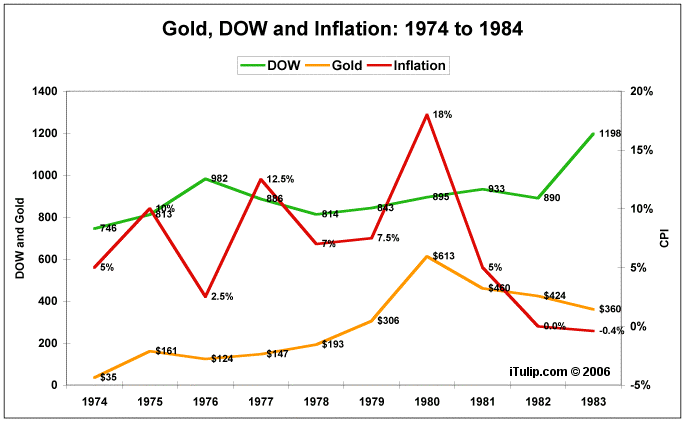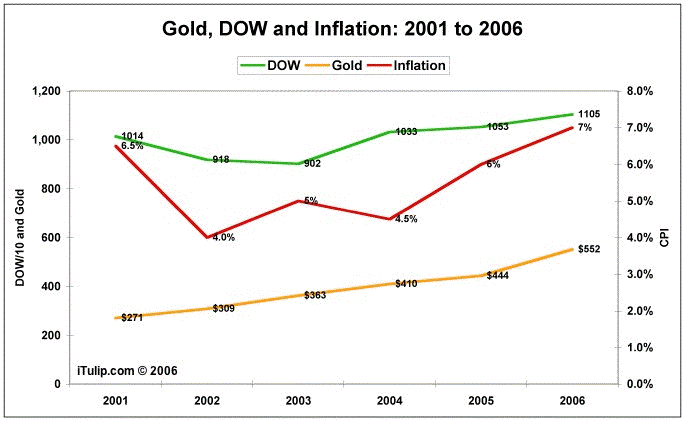
When Disasters Collide (registration)
November 13, 2006 (Susan Witty - Barron's)
(Discounted Barron's/WSJ subscription here: wallstreetjournaloffer)
How to Make Money in a "Bubblequake"
WORRIED ABOUT THE HOUSING BUBBLE? You should be, but don't let it monopolize your agita. There are four other bubbles also deserving of attention, according to americasbubbleeconomy: a stock-market bubble, a foreigner-supported-dollar bubble, a consumer-debt bubble and a U.S.-debt bubble. When the five collide in a "bubblequake," the book's authors predict, the air will rush out of the pumped-up U.S. economy, deflating the average American's assets and standard of living.
But not to panic. America's Bubble Economy has a subtitle: Profit When It Pops. Eric Janszen, one of its four authors, suggests keeping 10%-15% of your assets in gold, which he sees rising "to a peak price of $2,500 to $3,000'' an ounce. Janszen et al. also recommend eurobonds and euro-denominated exchange-traded funds, because most of Europe isn't as indebted as the U.S. and its main currency should outperform the dollar.
A former venture capitalist and founder of the financial Website iTulip, Janszen says the U.S. is repeating errors of the Nixon era, including massive government deficits, under-funded entitlements and an unpopular war the government can't fund with higher taxes or special bonds. Throw in today's growing global demand for commodities, and "... all roads still lead to inflation, whether due to energy costs, unfunded deficits or dollar-currency risks," he says.
Janszen, who was rightly skeptical of the Internet craze early-on, tells Barron's that the current stock-market bubble is "a reflection of monetary inflation" rather than future earnings. A more normal trendline, he says, would put the Dow at about half its present level, or 6,000. Now, that's something to worry about.
AntiSpin: None required, but comments are welcome.


Comment